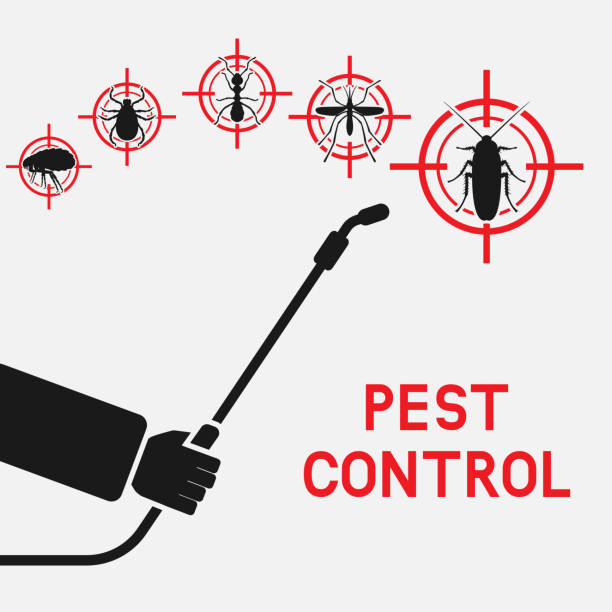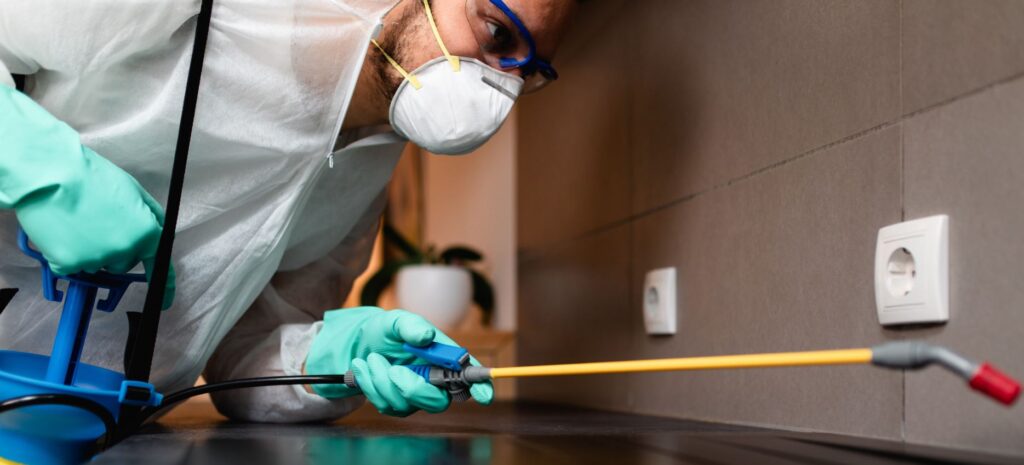Professional Wasp Control Coquitlam: Safe and Efficient Pest Removal
Professional Wasp Control Coquitlam: Safe and Efficient Pest Removal
Blog Article
Safe and Reliable Insect Control for Lasting Security
Efficient parasite administration calls for a multifaceted strategy that balances eco-friendly integrity with the requirement for effective insect reductions. The nuances of these approaches may not be promptly clear, prompting a better exam of the practices that can lead to sustainable parasite control outcomes.
Understanding Insect Control Techniques
Pest control incorporates a selection of methods focused on handling and getting rid of unwanted pests and rodents that can intimidate both health and residential or commercial property. Comprehending these approaches is essential for efficient parasite management.
The main classifications of parasite control approaches include mechanical, biological, and chemical techniques. Mechanical methods involve physical barriers and traps to avoid insect entrance and capture undesirable varieties. For example, using screens on home windows or using sticky catches can significantly decrease insect populations without introducing damaging compounds.

Chemical parasite control is frequently the most acknowledged technique, utilizing chemicals to get rid of pests. These chemicals can be efficient but must be made use of with caution to stay clear of unfavorable effects on non-target varieties and the setting.
Benefits of Eco-Friendly Solutions
How can eco-friendly solutions transform insect control methods? The fostering of eco-friendly pest control approaches provides countless benefits, dramatically improving the effectiveness and safety of pest monitoring.

An additional advantage is the positive influence on neighborhood biodiversity. Green options are created to target particular pests while preserving valuable insects and wildlife, promoting a balanced ecological community. This strategy straightens with the expanding consumer need for sustainable practices, boosting the track record of insect control carriers.
Integrated Bug Management Approaches
The application of environmentally friendly solutions normally leads to the fostering of Integrated Parasite Monitoring (IPM) strategies, which further improve pest control efficiency. IPM is an all natural method that incorporates multiple methods to manage parasite populations while lessening environmental effect. This strategy highlights using biological, social, mechanical, and chemical controls, ensuring a lasting and well balanced method of bug management.
One essential facet of IPM is the comprehensive analysis of insect task and ecological conditions. By keeping an eye on parasite populations and determining their life process, experts can execute targeted treatments that interfere with the pest's habitat or lifecycle, minimizing dependence on chemical pesticides. In addition, cultural practices such as plant turning and environment manipulation can considerably reduce parasite facility and recreation.
One more important part is using biological control agents, such as useful bugs or bacteria, which can naturally suppress insect populations. When chemical applications are required, IPM prioritizes making use of low-risk pesticides and applies them selectively, reducing direct exposure to non-target organisms and humans.
Including IPM approaches not just enhances bug control effectiveness however additionally promotes a safer ecosystem, lining up with the growing demand for sustainable practices in parasite monitoring.
Safe Practices for Home Owners
Recognizing the relevance of secure techniques in bug control can equip property owners to efficiently manage parasite concerns while guarding their wellness and the atmosphere. Applying safe techniques and preventive actions is important in reducing direct exposure to unsafe chemicals.
Home owners ought to initially evaluate their setting for conditions that draw in pests, such as standing water, food, and clutter waste. Frequently cleansing and sealing entrance factors can deter bugs from attacking the home. Using natural deterrents, such as crucial oils or diatomaceous earth, can supply reliable alternatives to chemical pesticides.
When chemical treatments are essential, property owners must select products that are particularly classified as secure for residential usage. It is vital to comply with application standards diligently to stay clear of overexposure. Additionally, utilizing targeted therapies in locations where pests are identified, instead of covering splashing, can dramatically lower chemical usage.
Last but not least, preserving open interaction with parasite control specialists is essential. Homeowners should ask about the safety of products used and request environmentally friendly options whenever possible. By taking on these secure techniques, house owners can produce a much healthier living atmosphere while efficiently managing pest issues.

Tips for Long-Term Security
Developing a pest administration approach that highlights long-term security can greatly improve the effectiveness of the secure methods formerly discussed. To achieve this, house owners need to execute regular evaluations of their property, focusing on hidden locations such as attic rooms, basements, and crawl areas. Early detection of parasite activity is essential in preventing problems from taking hold.
These practices minimize attractants that draw pests into the home. Sealing entrance factors, such as cracks around doors and windows, can effectively block prospective parasite accessibility.
Landscape design needs to also be thought about; maintaining plants cut and maintaining a range between plants and the home lessens hiding spots for bugs. Using natural deterrents, such as important oils or diatomaceous planet, can better discourage problems without considering extreme chemicals.
Last but not least, collaborating with an expert insect control service for periodic assessments can supply an additional layer of protection. These professionals can supply customized recommendations and progressed treatments, making certain that your home continues to be safeguarded against insects in the long-term.
Final Thought
In conclusion, risk-free and dependable parasite control calls for a diverse method that emphasizes environmentally friendly techniques and integrated parasite monitoring. By carrying out natural deterrents, check over here carrying out regular inspections, and preserving proper sanitation, residential property owners can considerably minimize pest populations while safeguarding valuable pests and the atmosphere. Partnership with expert bug control services improves the effectiveness of these methods, guaranteeing customized remedies that provide long lasting protection and assurance against future problems.
Efficient insect monitoring needs a diverse method that balances environmental stability with the need for reliable pest suppression. The adoption of environment-friendly insect control methods offers numerous advantages, considerably enhancing the efficiency and safety and security of pest management.The implementation of environmentally friendly options naturally leads to the fostering of Integrated Pest Management (IPM) strategies, which even more improve insect control efficiency. exterminator coquitlam. By checking insect populations and identifying their life cycles, professionals can implement targeted treatments that interfere with the insect's environment or lifecycle, decreasing reliance on chemical pesticides.In conclusion, risk-free and reliable bug control calls for a complex approach that highlights environmentally friendly techniques and incorporated pest administration
Report this page